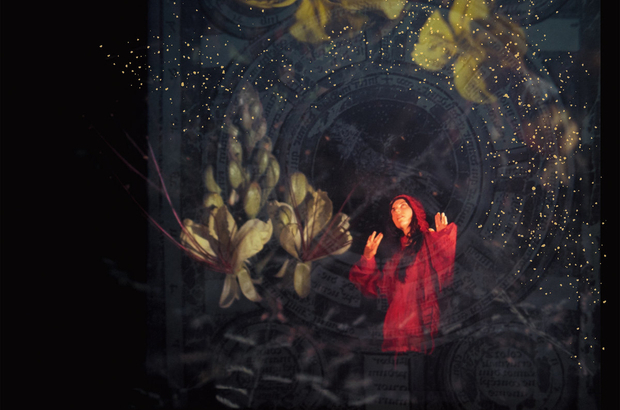MARC BARNARD reviews his album of 2018: Julia Holter’s Aviary.
Aviary bursts into being with a four-minute extended crescendo; a feverous din of strings, keys and drums, with Julia Holter’s distinctive vocals sweeping and sailing above the racket, offering only occasional moments of clarity. It’s hectic and bewildering – and a fitting overture for the next 90 minutes. Any accusations of indulgence on the composer’s part might not be unfounded: the album is consistently chaotic, often bewildering, but ultimately, utterly brilliant.
Aviary is not an easy listen by any means. Holter treats the listener to prolonged bagpipe solos, excerpts of Ancient Greek poetry, and passages of dissonance interspersing the baroque chamber pop we’ve come to expect. Most tracks eschew traditional song structures completely, instead meandering through various improvised sections, with Holter constantly taking her songs in unexpected directions.
Holter’s previous albums have not shied away from cerebral subject matter and experimental forms. Her debut album, Tragedy, was inspired by the Ancient Greek drama Hippolytus, and her 2013 album Loud City Song thematically took its cues from Gigi, a twentieth-century French novella. While far from conventional, her last album, Have Me in Your Wilderness, saw Holter stripping back many of these more left-field leanings, and exposed her as a songwriter with real emotional understanding. The album’s (relative) simplicity allowed for much more personal notes, and made for her best album to date. However, despite Aviary’s eccentric inclinations, it’d be wrong to claim that it marks a straightforward return to her earlier brand of grandiose experimental pop. Nor does its experimentalism feel like an academic exercise. These are a collection of songs brimming with joy and emotion.
A sense of glee permeates the second half of the album. Midway through the initially subdued ‘Les Jeux to You’, Holter exclaims with excitement as if she can’t be contained, ‘I see, I no, I yes, I you, I ace, I hi, I say, I low’, to a backdrop of pitch-shifted childlike squeaking. It’s a list of nonsensical possibilities, a self-affirmative declaration of her own potential. Immediately following this track, ‘Words I Heard’ is a counterpoint of sorts. Its dramatic backdrop of string arrangements is slow, sombre and genuinely moving. Her lyrics are abstract and cryptic, but never feel pretentious.
This song’s sentiment is echoed in the album’s centrepiece. ‘I Shall Love 2’ is the probably the best example of Holter’s ability to synthesise her experimental, literary and pop sensibilities since her 2012 single ‘Marienbad’. Across an ever-building canvas of instruments, a layered chorus of Holter’s own voice incants the words of the title, ‘I shall love, I shall love, I shall love’. A simple and hopeful mantra that can’t help but invite political readings in a world in which optimism for the future seems harder and harder to muster. After the sense of danger alluded to by the air-raid-like bagpipe solo of ‘Everyday is an Emergency’, in ‘I Shall Love 2’, Holter faces off the threat by inviting the listener to join her in a radical expression of love.
Given the current state of affairs on both sides of the Atlantic, it is easy to peg Aviary’s sense of hopefulness as political commentary. But to reduce the album simply to a treatise in the age of Trump would be to brush over its brilliance. Aviary is an album to spend time getting to know, which unravels itself gradually with each new listen. Don’t be put off by its ambiguity and its wilful extravagance, it is to be embraced in all its madness. In a world that defies understanding, Holter has released an album that does the same. Even among the chaos, Aviary paints us a world of endless possibility.
Featured image courtesy of juliaholter.bandcamp.com.





